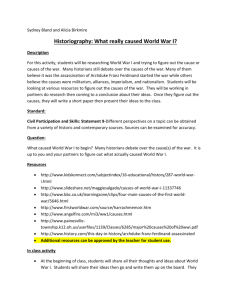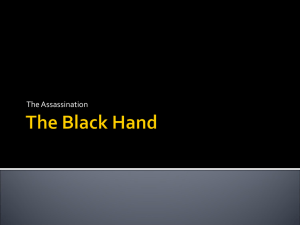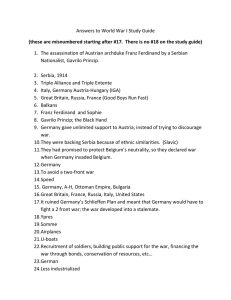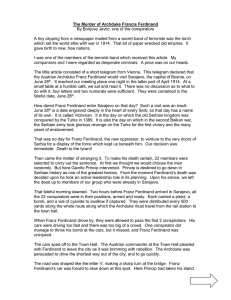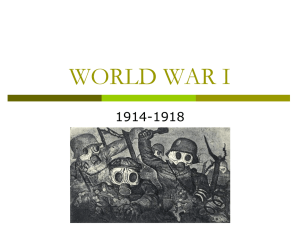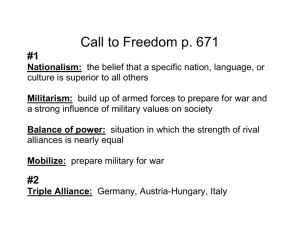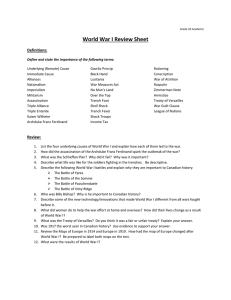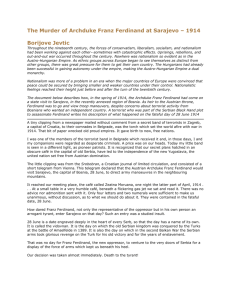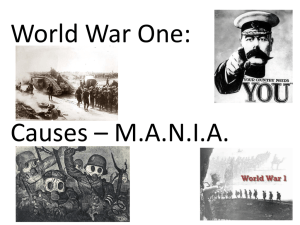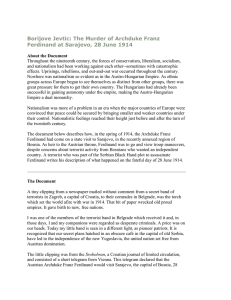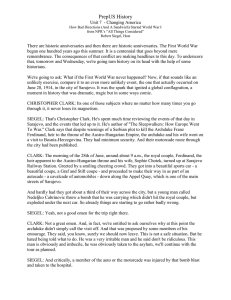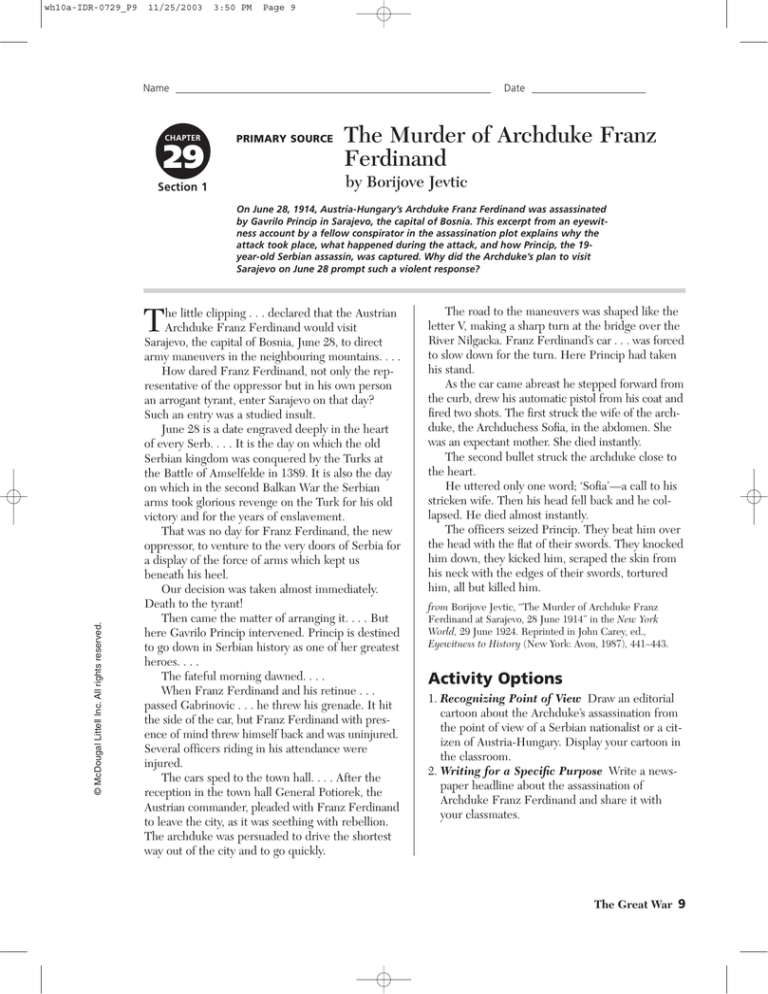
wh10a-IDR-0729_P9
11/25/2003
3:50 PM
Page 9
Name
CHAPTER
29
Section 1
Date
PRIMARY SOURCE
The Murder of Archduke Franz
Ferdinand
by Borijove Jevtic
On June 28, 1914, Austria-Hungary’s Archduke Franz Ferdinand was assassinated
by Gavrilo Princip in Sarajevo, the capital of Bosnia. This excerpt from an eyewitness account by a fellow conspirator in the assassination plot explains why the
attack took place, what happened during the attack, and how Princip, the 19year-old Serbian assassin, was captured. Why did the Archduke’s plan to visit
Sarajevo on June 28 prompt such a violent response?
© McDougal Littell Inc. All rights reserved.
T
he little clipping . . . declared that the Austrian
Archduke Franz Ferdinand would visit
Sarajevo, the capital of Bosnia, June 28, to direct
army maneuvers in the neighbouring mountains. . . .
How dared Franz Ferdinand, not only the representative of the oppressor but in his own person
an arrogant tyrant, enter Sarajevo on that day?
Such an entry was a studied insult.
June 28 is a date engraved deeply in the heart
of every Serb. . . . It is the day on which the old
Serbian kingdom was conquered by the Turks at
the Battle of Amselfelde in 1389. It is also the day
on which in the second Balkan War the Serbian
arms took glorious revenge on the Turk for his old
victory and for the years of enslavement.
That was no day for Franz Ferdinand, the new
oppressor, to venture to the very doors of Serbia for
a display of the force of arms which kept us
beneath his heel.
Our decision was taken almost immediately.
Death to the tyrant!
Then came the matter of arranging it. . . . But
here Gavrilo Princip intervened. Princip is destined
to go down in Serbian history as one of her greatest
heroes. . . .
The fateful morning dawned. . . .
When Franz Ferdinand and his retinue . . .
passed Gabrinovic . . . he threw his grenade. It hit
the side of the car, but Franz Ferdinand with presence of mind threw himself back and was uninjured.
Several officers riding in his attendance were
injured.
The cars sped to the town hall. . . . After the
reception in the town hall General Potiorek, the
Austrian commander, pleaded with Franz Ferdinand
to leave the city, as it was seething with rebellion.
The archduke was persuaded to drive the shortest
way out of the city and to go quickly.
The road to the maneuvers was shaped like the
letter V, making a sharp turn at the bridge over the
River Nilgacka. Franz Ferdinand’s car . . . was forced
to slow down for the turn. Here Princip had taken
his stand.
As the car came abreast he stepped forward from
the curb, drew his automatic pistol from his coat and
fired two shots. The first struck the wife of the archduke, the Archduchess Sofia, in the abdomen. She
was an expectant mother. She died instantly.
The second bullet struck the archduke close to
the heart.
He uttered only one word; ‘Sofia’—a call to his
stricken wife. Then his head fell back and he collapsed. He died almost instantly.
The officers seized Princip. They beat him over
the head with the flat of their swords. They knocked
him down, they kicked him, scraped the skin from
his neck with the edges of their swords, tortured
him, all but killed him.
from Borijove Jevtic, “The Murder of Archduke Franz
Ferdinand at Sarajevo, 28 June 1914” in the New York
World, 29 June 1924. Reprinted in John Carey, ed.,
Eyewitness to History (New York: Avon, 1987), 441–443.
Activity Options
1. Recognizing Point of View Draw an editorial
cartoon about the Archduke’s assassination from
the point of view of a Serbian nationalist or a citizen of Austria-Hungary. Display your cartoon in
the classroom.
2. Writing for a Specific Purpose Write a newspaper headline about the assassination of
Archduke Franz Ferdinand and share it with
your classmates.
The Great War 9

